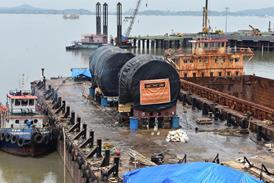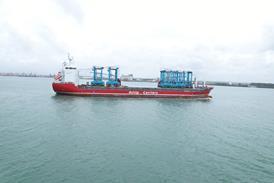If the UK leaves the European Union (EU) without a deal on the exit proceedings, there will be a significant effect on the offshore renewable energy market, said Global Renewables Shipbrokers (GRS).

In the event of a hard Brexit, all UK-flagged vessels will no longer be permitted to work in EU waters on a permanent basis until new regulations have been developed. It seems unlikely that this regulation could come into force in time.
GRS said that charterers and owners of UK-flagged vessels might not have considered all consequences for their charter parties, or did not have sufficient time to solve this issue. Therefore, in order to prevent partial or complete stoppages of offshore projects, the offshore renewable energy sector needs a rapid solution.
According to Article 1(1) of Regulation (EEC) 3577/92 (the maritime cabotage regulation), the provision of maritime transport services within EU member states is restricted to EU shipowners.
Maritime transport services include those normally provided for remuneration and include mainland cabotage and offshore supply services – such as the carriage of passengers or goods by sea between any port in a member state, and installations of structures situated on the continental shelf of that member state.
From the withdrawal date in a no-deal scenario, it would no longer be possible for UK nationals to provide maritime transport services in accordance with Regulation (EEC) 3577/92, said GRS.
Of course, the situation with regard to Brexit is still unclear. The chances of the UK leaving the EU with a deal have improved in recent days, although what this means for maritime transport is still not defined. The chance of an extension to the October 31 Brexit deadline is also increasingly likely, with EU statements indicating that it would allow extra time for legislation to pass.















